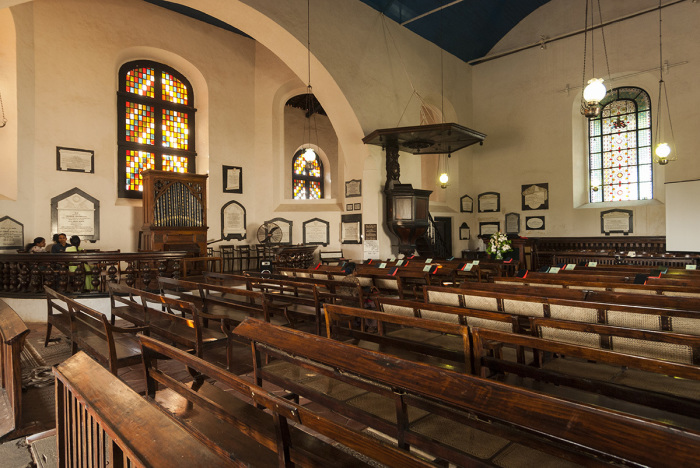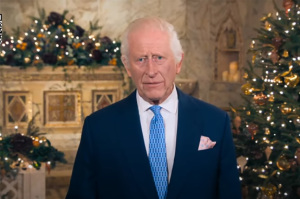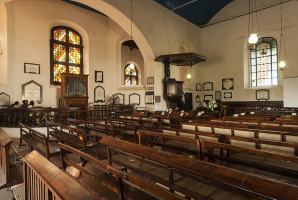Proposed regulation in Sri Lanka targets churches’ religious freedom, Evangelicals warn

A proposed regulation in Sri Lanka targets Christian churches in the Buddhist-majority country, according to an Evangelical association.
New churches trying to establish new worship sites are already required to register, and the proposal would make registration mandatory also for existing church venues, according to the National Christian Evangelical Alliance of Sri Lanka (NCEASL).
The Sri Lankan government’s proposal earlier this year for a new, mandatory registration system for existing Christian places of worship follows a circular issued in 2022 requiring registration for new religious centers, places of worship, prayer centers and religious symbols involving multiple bureaucratic steps.
Both the 2022 circular and the new proposal undermine freedom of religion or belief, said Mike Gabriel, head of the Religious Liberty Commission of the NCEASL.
“Protestant Christian churches, but especially independent, Evangelical churches across Sri Lanka, face uncertainty and potential infringement on their religious freedom due to the existing circular and proposed mandatory registration,” Gabriel said in a press statement. “Often, churches are asked by the police and local authorities to either register or discontinue churches and religious activities.”
The proposed system for existing Christian bodies’ sites would require approvals from various governmental authorities and a review of religious beliefs, Gabriel said.
Registration of places of worship should not be an obligation but an offer by the state to enable any religious community to acquire legal personality for various operational and functional purposes, according to international rights bodies. Sri Lanka’s system, however, makes government approval and permission required for Christians to publicly manifest religious beliefs and engage in religious practice, Gabriel said.
“This undermines constitutional guarantees for religious freedom and non-discrimination in Articles 10, 14 (1) (e), and 12 of the Constitution of Sri Lanka,” he said. “Mandatory registration of places of worship undermines not only the freedom of religion or belief as enshrined in Articles 18 of the UDHR [Universal Declaration of Human Rights, Article 20] and ICCPR [International Covenant on Civil and Political Rights, Article 22], but also the freedom of assembly and association.”
“Often, churches are asked by the police and local authorities to either register or discontinue churches and religious activities,” he said. “The government of Sri Lanka should refrain from implementing any law/circular/cabinet memorandum making it mandatory to register a place of worship in the country. If registration is deemed necessary, there should be a transparent and streamlined voluntary process that upholds religious freedom and non-discrimination.”
The 2022 circular requires new religious centers to register with multiple governmental authorities, including the divisional secretary, district secretary and ministry of religious affairs — but it has no legal basis, as the circular is not based on any parliament act as required by Sri Lankan law, Gabriel said.
The 2022 regulation requires new religious centers to obtain recommendations and bureaucratic approvals at various levels.
Unregistered religious venues are particularly vulnerable. In March, the head of the Ministry of Buddhasasana, Religious and Cultural Affairs, Vidura Wickramanayake, stated that unregistered religious centers engaging in conversion would be raided. He said the Commissioner General of Buddhist Affairs would instruct the police chief to raid unregistered religious venues engaged in conversions.
A 2003 Supreme Court ruling that the government is constitutionally required to protect only Buddhism also held that there is no fundamental right to proselytize under the constitution. In 2017 the Supreme Court determined that the right to propagate one’s religion is not protected by the constitution.
Sri Lanka’s constitution gives Buddhism a “foremost place” among the country’s religions and requires the government to protect it. The country’s population is 70.2% Buddhist, 12.6% Hindu, 9.7% Muslim and 7.4% Christian, according to the last census (2012).
The 2003 and 2017 Supreme Court rulings appear to contradict the constitution’s statement that citizens have the right to manifest their religion or belief in worship, observance, practice, or teaching, both in public and in private. It states that every person is “entitled to freedom of thought, conscience, and religion,” including the freedom to choose a religion. At the same time, the constitution gives Buddhism the “foremost place” among the country’s religious faiths and requires the government to protect it, although it does not recognize it as the state religion.
In a report released in March, the NCEASL noted that circulars in Sri Lanka have resulted in discriminatory practices against minority religious groups, hindering their worship rights through registration requirements and impeding freedom of religion or belief.
“The unequal implementation of circulars, especially against minority religious groups, as evident in reported incidents, raises concerns about potential misapplication and misuse, fostering inequality and discrimination,” the report stated.
The NCEASL opposes mandatory registration and asserts that if voluntary registration is adopted, there should be a clear and efficient processes free of unnecessary bureaucracy.
“Transparency and accountability should be ensured throughout the registration process to uphold religious freedom and non-discrimination,” Gabriel said. “Given the complex and bureaucratic nature of the current registration process and proposed mandatory registration, NCEASL advocates for a clear, transparent, streamlined and voluntary registration process for places of worshipthat allows Christian churches the option to seek legal [representation] for various operational and functional purposes.”
This article was originally published at Christian Daily International
Christian Daily International provides biblical, factual and personal news, stories and perspectives from every region, focusing on religious freedom, holistic mission and other issues relevant for the global Church today.





























